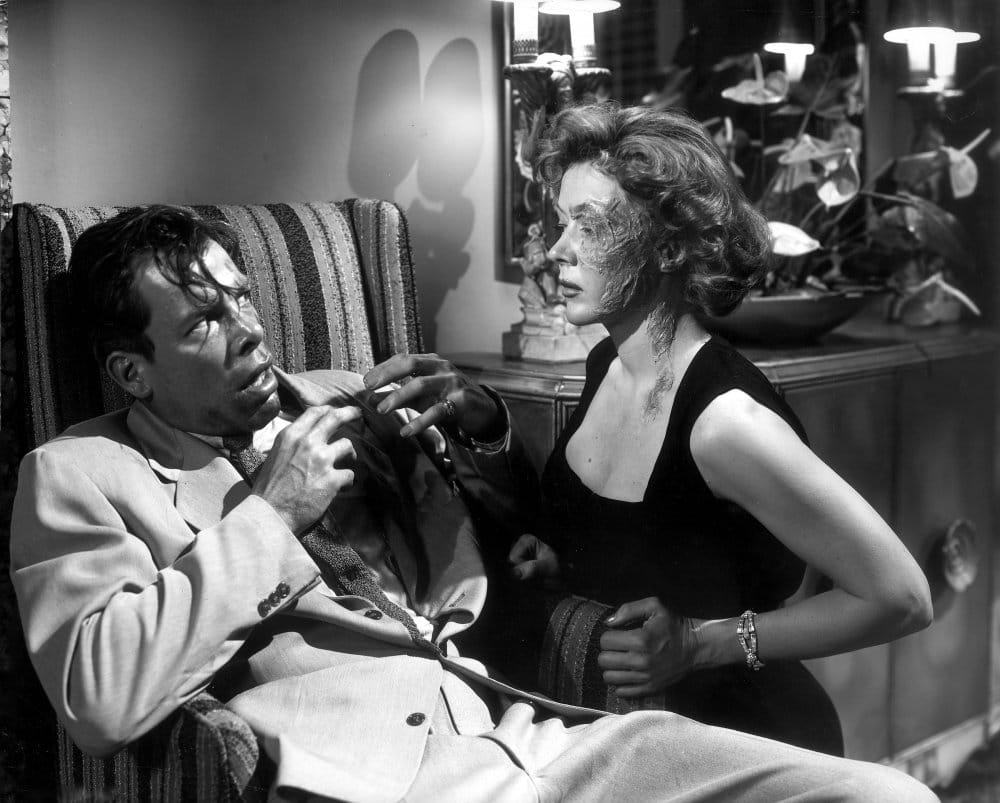Fritz on Fridays: <i>The Big Heat</i> (1953)

Beginning today, on the first Friday of every month, this column by critic Joshua Polanski will feature a short review or essay on a film directed by Fritz Lang (1890-1976), the great Austrian “Master of Darkness.” Occasionally (but not too occasionally), Fritz on Fridays will also feature interviews and conversations with relevant critics, scholars and filmmakers about Lang’s influence and filmography.
The most memorable and lasting film from Fritz Lang’s Hollywood career, The Big Heat (1953), opens with a close-up of a pistol — a distinctly American image for the Austrian émigré — that a cop, sitting at his desk as if in deep thought, picks up to kill himself. Then, in typical Langian fashion, a grandfather clock sets into motion the ticking clock to solve the suicide.
Approaching its 70th anniversary next week, The Big Heat is a pessimistic, mordacious, even feral film in the late style of the great director — a style that will become more recognizable as this column continues. One won’t find either a protagonist or virtue in Lang’s best-known Hollywood picture, only a man driven by the murder of his spouse into a fully immersive bout of utilitarian revenge.
Continue reading at the Midwest Film Journal.